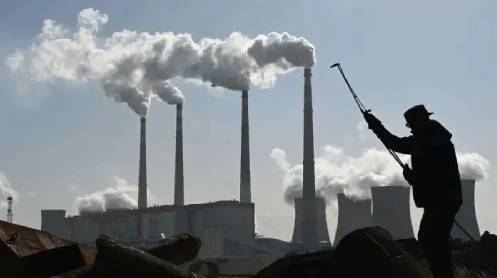The days of promoting liquefied natural gas as “freedom gas” or “molecules of freedom” have ended at the U.S. Department of Energy.
During a visit to Houston, U.S. Secretary of Energy Jennifer Granholm said the Biden administration would rather promote and sell a cleaner version of the superchilled fuel. The statement marks a policy shift from the Trump administration, which rolled back environmental regulations and heavily promoted U.S. LNG around the world.
The energy industry has been under mounting pressure from investors and governments to step up efforts to reduce greenhouse-gas emissions, with some spectacular victories for activists over Big Oil this week. U.S. LNG makers are seeking to green their image in order to land supply deals with environmentally conscious customers in Europe and Asia.
The Biden administration, Granholm said, is looking closely at carbon capture and sequestration technology, which would take emissions from LNG plants and other facilities, move them by pipeline and then inject them underground.
“We want to be able to promote and sell clean technologies,” Granholm said following a tour at an Air Liquide SA hydrogen plant in La Porte, Texas. “That could be natural gas that has been decarbonized, or that could be natural gas where the methane flaring has been eliminated.”
Houston-based Cheniere Energy Inc., the largest U.S. LNG exporter, recently announced that it would be including carbon emission tags with its cargoes, allowing customers to audit the environmental footprint of a shipment. One of the company’s LNG tankers recently participated in a study analyzing emissions on a roundtrip between Texas and Europe.
Arlington, Virginia-based Venture Global LNG announced Thursday that it plans to implement carbon capture and sequestration at three export terminals in Louisiana, where one is already under construction and expected to produce its first drops of the fuel later this year.
Still seeking to sell enough contracts to support its proposed Rio Grande LNG export terminal in South Texas, Houston-based LNG developer NextDecade Corp. has also pledged to add carbon capture and storage to its plant.




